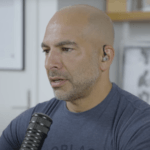
#278 ‒ Breast cancer: how to catch, treat, and survive breast cancer | Harold Burstein, M.D., Ph.D.
“We’ve completely flipped the outcomes for HER2-positive breast cancer, where it has gone from one of the most feared types of breast cancer to one of the most successfully treated types of breast cancer.” —Harold Burstein

Is the frequency of menopausal symptoms an early barometer for later-in-life brain health?
More than “bothersome”: Frequent menopausal hot flashes during sleep are associated with greater white matter hyperintensity volume

#273 ‒ Prostate health: common problems, cancer prevention, screening, treatment, and more | Ted Schaeffer, M.D., Ph.D.
“The faster that your PSA density rises, it is a canary in the coal mine. . .you need to do some additional evaluation.” —Ted Schaeffer

Statins: effectiveness, safety, and common myths on their role in ASCVD prevention
A review of the evidence for statins in combating heart disease

More than glycemic control: SGLT2 inhibitors may extend lung cancer survival
A retrospective study offers hope

Can a peptide found in bee stings offer hope for treatment-resistant breast cancers?
Melittin, the main component of honeybee venom, has shown promise as a basis for chemotherapeutic drugs to combat treatment-resistant breast cancer





